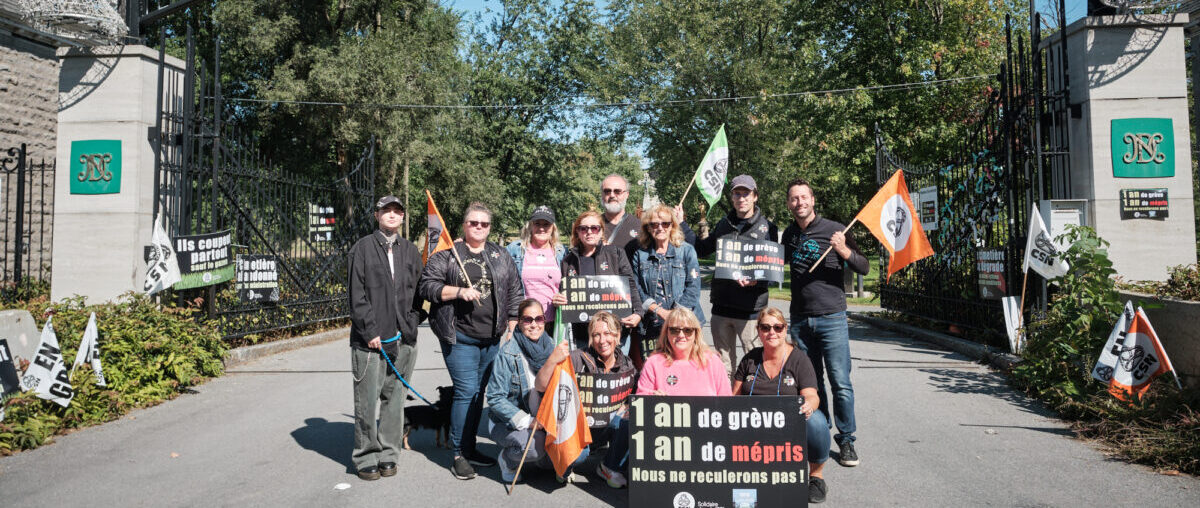The Labour Minister’s bill targeting Quebec workers’ right to strike was passed by the National Assembly at the end of May. Over the past few months, most Quebec unions have come together to denounce what they see as an unconstitutional measure: according to a Supreme Court ruling, the right to strike stems from workers’ freedom of association.
Jean Boulet, dubbed “the bosses’ minister,” justified his bill—officially aimed at “better considering the population’s needs during strikes or lockouts”—by pointing to a few labour disputes he deemed too lengthy. Among them, he cited the strike by workers at Notre-Dame-des-Neiges Cemetery, which lasted over a year.
In an interview with The North Star, Éric Dufault, president of the office workers’ union at the Notre-Dame-des-Neiges Cemetery, questioned the minister’s motives.
“Our strike wasn’t just about wanting more, like more money, vacation time, work boots,” Dufault explained. “It was about having enough staff on the ground to provide proper service and to honour the memory and the promise the Notre-Dame-des-Neiges Cemetery makes to the deceased. That’s what we changed with our strike.”
While the CAQ accuses strikers of depriving the public of essential services, Dufault says unions are often fighting against service cuts.
He adds that continuing to work as if everything were fine would have been a form of surrender. “We filed grievances over every unfilled position. But it takes 18 to 24 months to get an arbitration hearing. You’re contesting a decision that takes effect immediately, but you won’t get a verdict for two years.”
“We forced our employer, the cemetery, to set up staffing and a working model that made the place operational. Because what the employer was proposing at the bargaining table was a disaster. They wanted to cut staff by 80%. The cemetery would’ve turned into the Serengeti.”
With Bill 89 passed, union members have lost a crucial bargaining tool to defend and improve their working conditions. Among the cemetery workers, this new law is being firmly rejected.
“It’s unanimous. For us, this is a real loss of autonomy. There’s an injustice here. We fought a war, and not a war to take services away from the public. We fought to open the eyes of an employer who was willfully blind.”

Dufault adds that some unions may be prepared to defy the new law with pressure tactics that go against Bill 89.
“The first case under Bill 89 will be critical. The first union targeted by it will receive overwhelming support. What will that look like? Will other unions physically block workplaces? Will we see indirect human picket lines? These are some of the options we’ve started discussing.”
To Dufault, the CAQ has shut the door on any dialogue. “I don’t think we could’ve shown more opposition to this bill. There wasn’t even a consultation. They clearly weren’t listening. So we’ll need to strike back through impact. We’ll need to show that this approach won’t work.”
The CSN has initiated legal proceedings to challenge the validity of Bill 89, but the court battle could stretch over several years.
Dufault also warns that forcing workers back to their jobs doesn’t create peace. “I’m certain there will be human consequences when people are forced back to work. It won’t be accepted. Some might sit back down at their desks, sure—but we’ll see sabotage. We’ll see illegal actions.”


